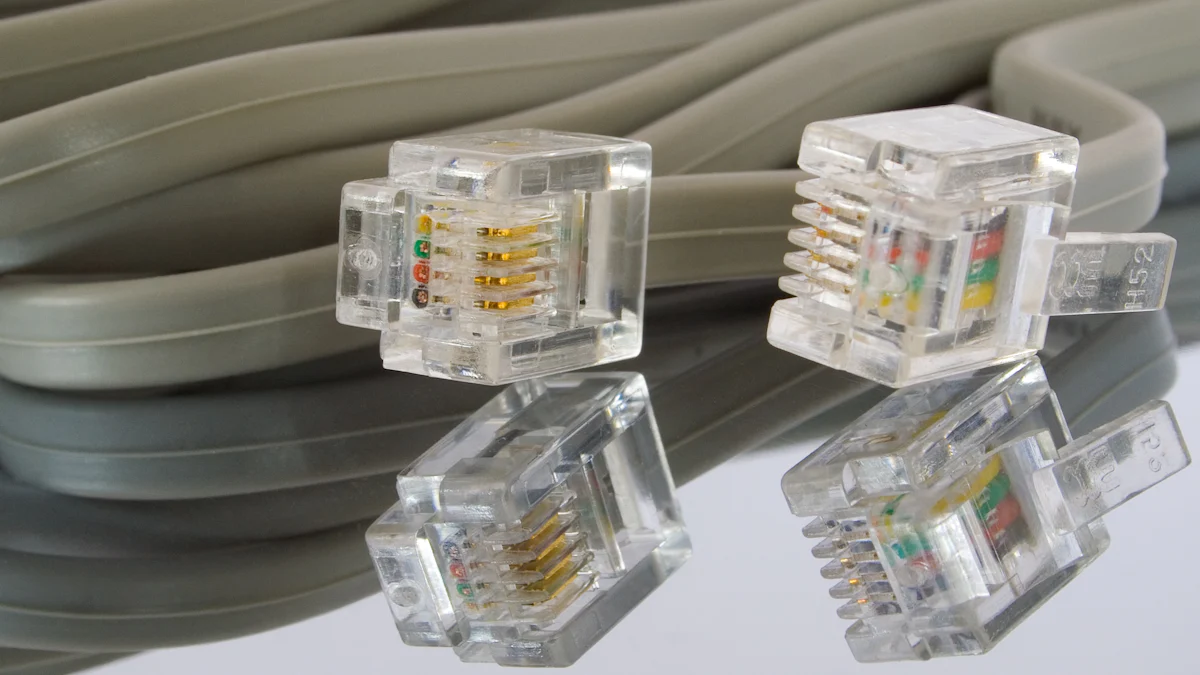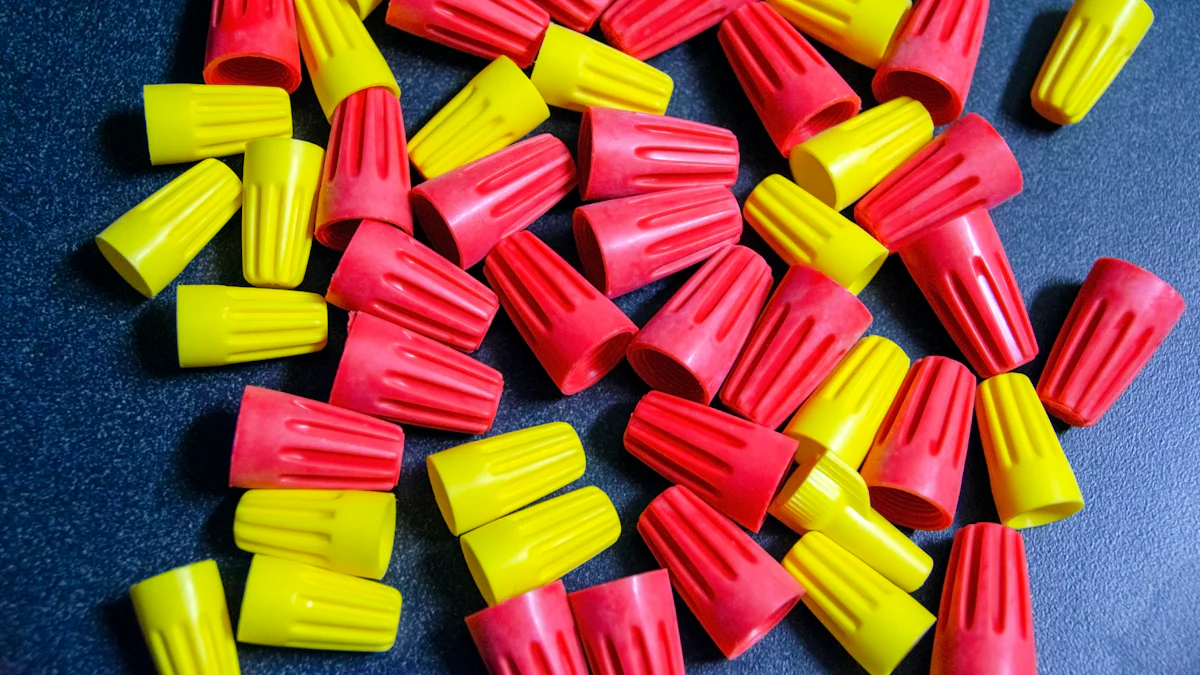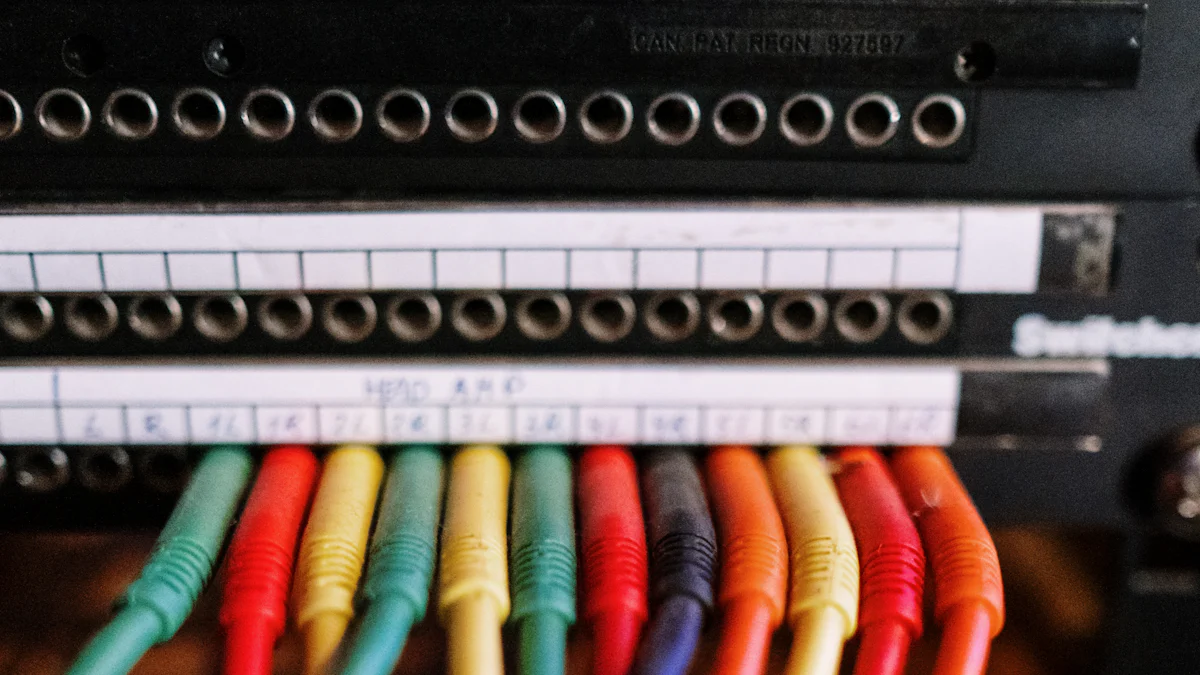Which Wire Connector is Best for You?

Selecting the appropriate wire connector is essential for any electrical project, as it guarantees both safety and efficiency. When choosing electrical wire connectors, several factors must be considered. First, determine the type of wiring project, as residential and commercial projects have distinct requirements. Next, evaluate the environmental conditions, since temperature and moisture can impact the performance of the wire connector. Lastly, consider the ease of installation, as some electrical wire connectors may require special tools or skills. By assessing these elements, you can make an informed decision that meets your specific needs.
Types of Wire Connectors

Choosing the right wire connector is crucial for any electrical project. Different types of connectors serve various purposes. Understanding their advantages, disadvantages, and ideal use cases will help you make an informed decision.
Twist-on Wire Connectors
Twist-on wire connectors, often called wire nuts, are popular in many electrical applications.
Advantages
Ease of Use: You can easily install twist-on wire connectors by twisting them onto the wires.
Versatility: They work well with a range of wire sizes and types.
Cost-Effective: These connectors are generally affordable, making them a budget-friendly option.
Disadvantages
Limited to Dry Locations: Twist-on connectors are not suitable for wet environments.
Manual Effort Required: You need to apply some force to twist them securely, which might be challenging in tight spaces.
Ideal Use Cases
Residential Wiring: Perfect for indoor electrical projects like connecting light fixtures or outlets.
Temporary Connections: Useful for quick fixes or temporary setups.
Crimp-on Wire Connectors
Crimp-on wire connectors require a crimping tool for installation, providing a secure connection.
Advantages
Strong Connection: Crimping creates a solid bond that resists vibration and movement.
Variety of Styles: Available in different forms like butt connectors and ring terminals.
Disadvantages
Tool Requirement: You need a crimping tool, which adds to the cost and complexity.
Skill Level: Proper crimping requires some practice to ensure a reliable connection.
Ideal Use Cases
Automotive Wiring: Excellent for vehicle electrical systems where vibration is a concern.
Industrial Applications: Suitable for environments requiring robust connections.
Push-in Wire Connectors
Push-in wire connectors offer a quick and straightforward way to connect wires without twisting or crimping.
Advantages
Quick Installation: Simply push the wire into the connector for a secure fit.
No Tools Needed: You don't need any special tools, making it convenient for DIY projects.
Disadvantages
Limited Wire Sizes: Not suitable for all wire gauges, so check compatibility first.
Less Secure in High-Vibration Areas: May not hold as firmly as crimped connections in vibrating environments.
Ideal Use Cases
Home Electrical Projects: Ideal for connecting wires in junction boxes or light fixtures.
DIY Enthusiasts: Great for those who prefer a tool-free installation process.
Underground Wire Connectors
Underground wire connectors play a crucial role in outdoor electrical projects. They ensure that your connections remain secure and functional, even in challenging environments.
Advantages
Waterproof Design: Underground wire connectors feature a waterproof design. This ensures that moisture does not compromise your electrical connections.
Durability: These connectors withstand harsh environmental conditions. They resist corrosion and other forms of degradation.
Safety: By preventing water ingress, they reduce the risk of electrical shorts. This enhances the safety of your installations.
Disadvantages
Higher Cost: Underground wire connectors often cost more than standard connectors. This is due to their specialized design and materials.
Complex Installation: Installing these connectors may require additional steps. You might need to use sealing compounds or tapes for added protection.
Ideal Use Cases
Outdoor Lighting: Use underground wire connectors for garden lights or pathway illumination. They ensure reliable performance in wet conditions.
Irrigation Systems: These connectors are perfect for wiring pumps and controllers. They handle exposure to water and soil effectively.
Landscape Projects: When installing electrical features in landscapes, choose underground wire connectors. They provide long-lasting connections in outdoor settings.
Factors to Consider When Choosing a Wire Connector
Type of Wiring Project
When selecting a wire connector, you must first consider the type of wiring project. Different projects have unique requirements that influence your choice.
Residential vs. Commercial
Residential Projects: In homes, you often deal with lower voltage systems. You need connectors that are easy to install and safe for indoor use. Twist-on connectors work well for most household applications.
Commercial Projects: These projects usually involve higher voltages and more complex systems. You require connectors that can handle larger loads and provide secure connections. Crimp-on connectors are often preferred in commercial settings due to their robust nature.
Indoor vs. Outdoor
Indoor Use: Indoor environments typically have stable conditions. You can use a variety of connectors, such as push-in or twist-on, depending on the specific application.
Outdoor Use: Outdoor projects face environmental challenges like moisture and temperature fluctuations. You need connectors designed to withstand these conditions. Underground wire connectors, with their waterproof design, are ideal for outdoor installations.
Environmental Conditions
Environmental factors play a crucial role in determining the right wire connector. You must assess the conditions where the connectors will be used.
Temperature
High Temperatures: In areas with high temperatures, you need connectors that can dissipate heat effectively. This ensures the longevity and safety of your connections.
Low Temperatures: Cold environments require connectors that remain flexible and functional. Some materials may become brittle in low temperatures, so choose accordingly.
Moisture
Dry Conditions: In dry environments, you have more flexibility in choosing connectors. Most types will perform well without the risk of moisture interference.
Wet Conditions: Moisture can compromise electrical connections. You need waterproof connectors, like underground wire connectors, to prevent water ingress and ensure safety.
Ease of Installation
The ease of installation is another important factor. You should consider the tools required and the skill level needed for installation.
Tools Required
Minimal Tools: If you prefer a simple installation process, opt for connectors that require minimal tools. Push-in connectors are a great choice for tool-free installations.
Specialized Tools: Some connectors, like crimp-on types, require specific tools. While they offer strong connections, you must invest in the right equipment.
Skill Level
Beginner-Friendly: For those new to electrical work, choose connectors that are easy to use. Twist-on and push-in connectors are user-friendly and suitable for DIY projects.
Advanced Skills: Experienced individuals might prefer connectors that offer more secure connections, even if they require advanced skills. Crimp-on connectors, while requiring practice, provide reliable results in demanding applications.
By considering these factors, you can select the most suitable wire connector for your project. Whether you're working on a residential or commercial project, indoors or outdoors, understanding these elements will guide you to make an informed decision.
Recommendations Based on Common Scenarios

Choosing the right wire connector depends on the specific scenario you are dealing with. Here are some recommendations based on common situations you might encounter.
Home Electrical Projects
Recommended Connectors
For home electrical projects, you need connectors that are easy to use and reliable. Twist-on wire connectors are a great choice for most residential applications. They are simple to install and work well with a variety of wire sizes. You can use them for tasks like connecting light fixtures or outlets. If you prefer a tool-free option, consider push-in wire connectors. These connectors allow for quick installations without the need for twisting or crimping. They are perfect for DIY enthusiasts who want a straightforward solution.
Industrial Applications
Recommended Connectors
In industrial settings, you often deal with more complex systems and higher voltages. Crimp-on wire connectors are ideal for these environments. They provide a strong and secure connection that can withstand vibration and movement. This makes them suitable for machinery and equipment where reliability is crucial. You will need a crimping tool to install these connectors, but the investment is worthwhile for the robust connections they offer. For projects involving underground installations, consider using connectors that can efficiently dissipate heat. This is essential for maintaining safe and efficient operations.
Outdoor Installations
Recommended Connectors
Outdoor installations require connectors that can handle environmental challenges like moisture and temperature fluctuations. Underground wire connectors are specifically designed for these conditions. They feature a waterproof design that prevents water ingress, ensuring your connections remain safe and functional. Use them for outdoor lighting, irrigation systems, or any landscape projects where exposure to the elements is a concern. By choosing the right connector, you can ensure the longevity and safety of your outdoor electrical installations.
Efficient dissipation of heat is crucial for safe and efficient operations in outdoor projects. When dealing with high-voltage direct current (HVDC) cables, it's important to conduct heat away to prevent performance issues. Although there is no industry standard for assessing soil heat conductivity for HVDC power lines, innovation in this area can offer a standardized approach for underground projects globally.
Choosing the right wire connector is crucial for your project's success. Each type offers unique features:
Twist-on connectors: Easy to use and versatile.
Crimp-on connectors: Provide strong, secure connections.
Push-in connectors: Offer quick, tool-free installations.
Underground connectors: Designed for outdoor durability.
Consider your specific scenario. For home projects, twist-on or push-in connectors work well. Industrial settings benefit from crimp-on connectors. Outdoor installations require underground connectors. Make an informed decision to ensure safety and efficiency in your electrical projects.
See Also
In-Depth Analysis of Cable and Connector Varieties
Exploring Various Kinds of RF Connectors
Top Picks: Electricians' Favorite Crimping Tools
